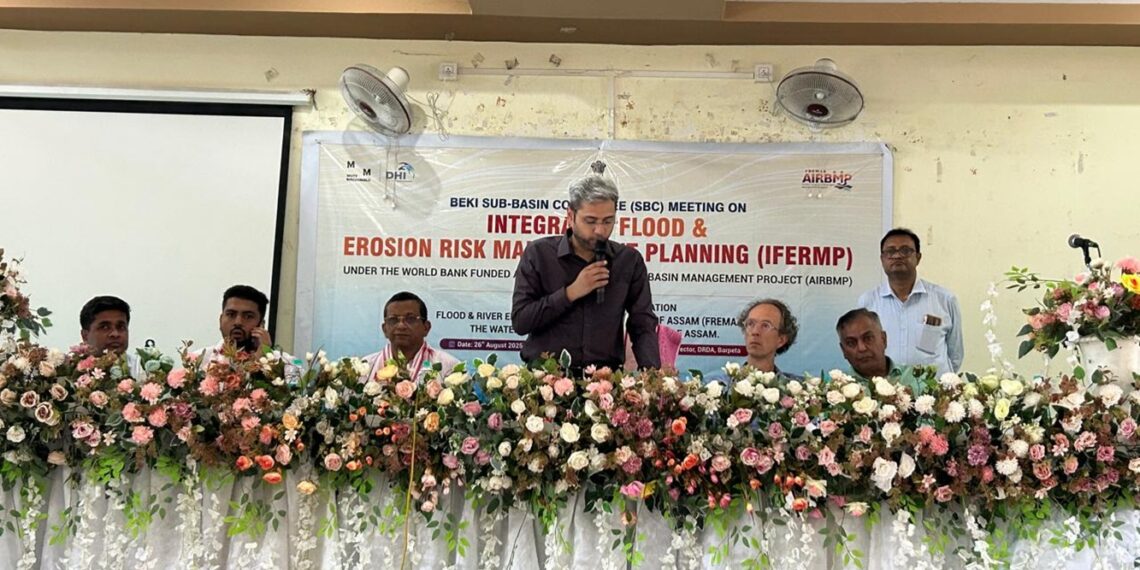Barpeta: A one-day workshop on Integrated Flood and Erosion Risk Management Planning (IFERMP) for the Beki sub-basin was held on Tuesday at the DRDA Training Hall in Barpeta, bringing together officials from six districts under the sub-basin to chart strategies for flood and erosion control.
The meeting is part of a World Bank-funded initiative under the Assam Integrated River Basin Management Project (AIRBMP), implemented by the Flood and River Erosion Management Agency of Assam (FREMAA) and the state’s Water Resources Department.
The project aims to develop comprehensive flood forecasting and risk management plans for three major sub-basins of the Brahmaputra—Beki, Buri-Dihing, and Jiadhal.
Authorities are in the process of notifying Sub-Basin Committees for these rivers to expedite planning and implementation.
The Beki sub-basin covers the districts of Barpeta, Nalbari, Chirang, Baksa, Tamulpur, and Bajali.
The Deputy Commissioner of Barpeta heads the committee, while the Executive Engineer of the Water Resources Department serves as Member Secretary.
Chairing the meeting, Barpeta DC Rohan Kumar Jha highlighted the need for a coordinated approach to tackle recurring challenges of floods and erosion in Assam.
“Barpeta, with its rich cultural heritage and vibrant communities, is deeply connected with our rivers and wetlands. Addressing issues such as flood management, irrigation planning, and ecological preservation requires not only technical expertise but also collective will and coordinated action,” he said.
ALSO READ: SpiceJet introduces paperless boarding at Shillong Airport, plans nationwide expansion
The workshop saw participation from senior officials including Barpeta Zilla Parishad CEO Diganta Baishya, Additional Deputy Commissioners for Disaster Management Kaustav Kalita and Pranjal Konwar, Executive Engineer Dayananda Vaishnab, as well as international expert Rob Nieuwenhuis from the Netherlands and hydrologist Dr. Arnab Sarma.
Emphasizing the participatory nature of the plan, the DC said the objective goes beyond reviewing data or approving proposals.
“It is about creating a future where farmers have reliable access to water, ecosystems are protected, and communities are resilient against climate variability,” he added, urging all stakeholders to work together for inclusive and sustainable water governance.















